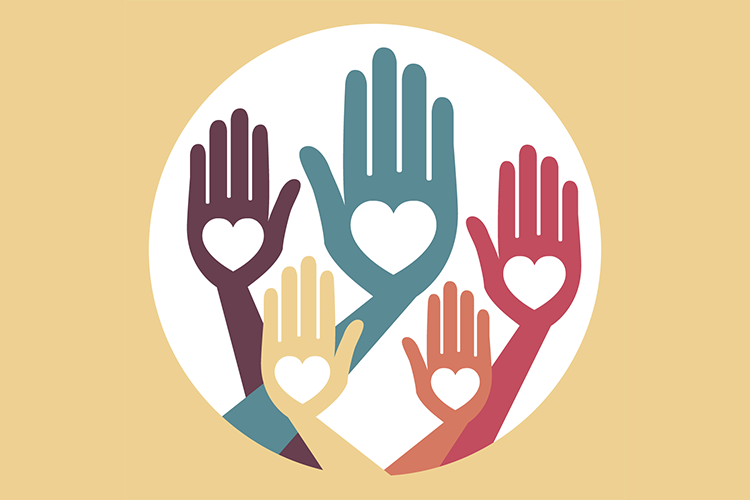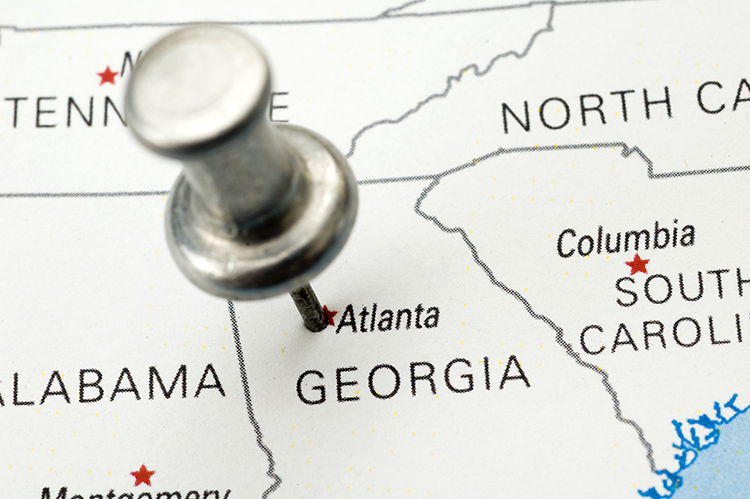5 ways to do more pro bono in 2021

Image from Shutterstock.com.
The most rewarding work ABA President Patricia Lee Refo has done has been pro bono.
“Big and small, and that is the beauty and the power of the ABA’s pro bono offerings,” she says. “We offer bite-size opportunities like Free Legal Answers that take a small amount of time and make a huge difference in someone’s life. We also offer opportunities that are slightly larger that might be more appropriate for a team of lawyers in a larger firm to undertake together.
“The point is, whatever practice setting you’re in, the ABA offers you an opportunity to serve your community through pro bono work that works for you.”
For ABA members who want to join Refo and do more pro bono in 2021, here are five ways to get involved:
1. Give virtual legal advice.
ABA Free Legal Answers is a virtual clinic that allows income-eligible users to ask volunteer attorneys questions about family law, housing and other civil legal issues. Prior to the pandemic, the program was available in more than 40 states, but it recently expanded to include federal legal issues. Attorneys who are accredited with the U.S. Department of Veterans Affairs can answer questions related to veterans. Through a new partnership, American Immigration Lawyers Association members and other attorneys with experience in immigration law also are invited to answer immigration questions.
 Jennie Kneedler
Jennie Kneedler“The selling points are you can log in from anywhere and if you want to do pro bono but you don’t feel like you can commit to a full case, you can provide three hours of service by answering someone’s question,” says Jennie Kneedler, the director of policy and pro bono with the Commission on Immigration. “It’s a flexible way to volunteer without a long-term commitment.”
The federal site is now open to volunteers, and users should be able to post their questions by January. Interested attorneys can learn more or sign up for the federal or state programs by visiting www.ABAFreeLegalAnswers.org and selecting “Volunteer Attorney Registration.” A recent webinar offering an overview of the virtual clinic and its benefits is also available here.
2. Assist at the border, from anywhere.
Amid the pandemic, the Commission on Immigration continues to offer opportunities to members who want to help at the border. The South Texas Pro Bono Asylum Representation Project in Harlingen, Texas, provides legal information and pro bono representation to adults and unaccompanied children in immigration detention. The Immigration Justice Project provides pro bono legal services to indigent immigrants and asylum-seekers who appear before the San Diego immigration court and in appeals. A third project, Pro Bono Matters for Children Facing Deportation, is operated by the Children’s Immigration Law Academy in Houston and connects lawyers with unaccompanied immigrant children who have been detained by the federal government or released to family during deportation proceedings.
The commission’s programs have been remote since March, Kneedler says, so pro bono attorneys provide most services by telephone. “There is a crisis of lack of access to counsel for detained people so anything that can be done to close that gap is hugely helpful,” she says. “And with COVID, people feel really desperate, so honestly, a lot of being a volunteer is also just being someone who calls them and reminds them that there is someone outside who cares about them.”
Another recent webinar, which provides instructions on how to volunteer as well as links to interest forms, is available here.
3. Work with military personnel or their lawyers.
The ABA offers members several opportunities to give back to military service members. The Standing Committee on Legal Assistance for Military Personnel manages the Military Pro Bono Project, which accepts pro bono case referrals from military lawyers on behalf of junior-enlisted, active-duty military personnel and their families. It then works to place these cases with volunteer attorneys around the country. Attorneys have provided pro bono representation for a variety of civil legal issues, including family law matters, guardianship, creditor and consumer issues, and landlord-tenant matters, among others. Those interested can sign up to receive updates about open cases or view them on the project’s website, www.militaryprobono.org.
 Mary Meixner
Mary Meixner“Recognizing the sacrifices that military families make on behalf of us all, it is important for ABA members to consider these volunteer opportunities to help our service members and their families,” says Mary Meixner, director of the Military and Veterans Legal Center.
The Military Pro Bono Project also serves as the platform for Operation Stand-By. Through this program, military attorneys or other pro bono attorneys can seek guidance from civilian attorneys on legal questions related to specific geographic areas or areas of expertise so they can better assist their service member clients. Members interested in this opportunity can register by clicking “Attorney Registration” on the project’s website and choosing Operation Stand-By.
4. Represent tenants facing eviction.
Up to 40 million people could be forced from their homes once the federal moratorium on evictions expires. In October, Refo called on bar leaders to mobilize members to help with this looming crisis. Pro bono attorneys are needed to provide tenants with brief advice and limited and full representation as well as ensure they receive equitable outcomes in alternative dispute resolution, diversion programs and settlements.
 Photo of Jeff Brown by Shannon Green.
Photo of Jeff Brown by Shannon Green.“There are two sets of problems,” Refo says. “One is the obvious humanitarian crisis and the second is the crisis in the courts. Our courts simply cannot address the volume of evictions that would come their way if all of the evictions are filed at once.” To support these efforts, the Task Force on Legal Needs Arising Out of the 2020 Pandemic formed the COVID-19 Pro Bono Bar Network, which supports the launch of pro bono models, promotes best practices and identifies strategies to overcome obstacles.
Jeff Brown, the pro bono program manager at the State Bar of Wisconsin, was one of the first to join. “If it’s something that looks like it’s promising as a way to do outreach either to individuals who need help or to lawyers who might volunteer, I’m always interested,” he says.
ABA members can use the National Pro Bono Opportunities Guide to identify local legal services organizations and opportunities to help with eviction cases.
5. Respond to the pandemic and other disasters.
Since 2007, the Young Lawyers Division’s Disaster Legal Services Program has responded to 222 disasters in 45 states and five U.S. territories. In April, the YLD and Paladin, a justice technology company, announced that lawyers who want to provide pro bono assistance to people affected by COVID-19 and other disasters like the recent tornadoes in Tennessee can sign up via the first national Disaster Relief Pro Bono Portal. Through this platform, volunteers can filter opportunities by practice area, community, type of engagement and the ability to work remotely.
 Amanda Brown
Amanda BrownAmanda Brown, the vice director of the Disaster Legal Services Program, adds that cases will continually be posted to the portal as disasters occur and state partners need volunteers to help with such legal issues as landlord/tenant problems, insurance claims and government benefits. State hotline hosts and legal services organizations are also able to add pro bono opportunities.
“Disasters are really hard on people, period, but we also have tons of people who have maybe lost everything and find themselves qualifying for free legal services but, because of the mismatch in resources, aren’t able to get those services,” Brown says. “We need pro bono volunteers to step up and provide those services.”
Lawyers can register and view available cases at https://aba.joinpaladin.com.
See also:
ABA Journal: “Building for good: ABA construction lawyers give back to their communities”
ABA Journal: “Pro Bone-o: Chicago animal shelter gets treats from ABA public service project”
ABA Journal: “First-ever ABA Giving Day addresses COVID-19 and racial justice”
ABA Journal: “Working from home? ABA Free Legal Answers offers pro bono opportunities”
Write a letter to the editor, share a story tip or update, or report an error.


